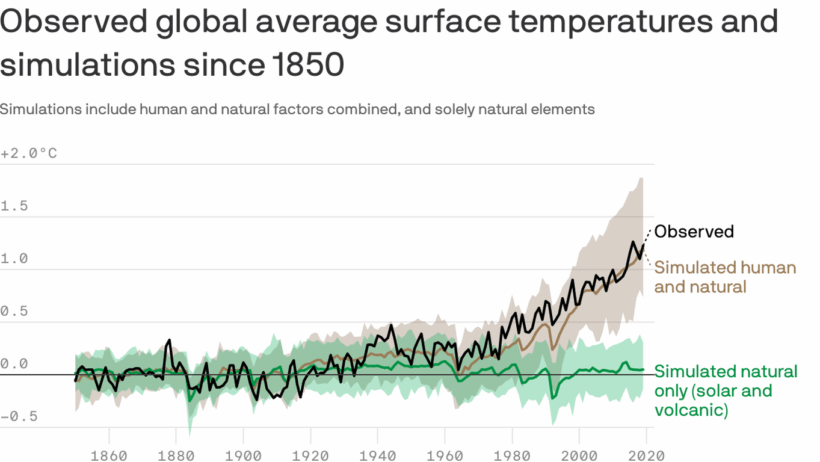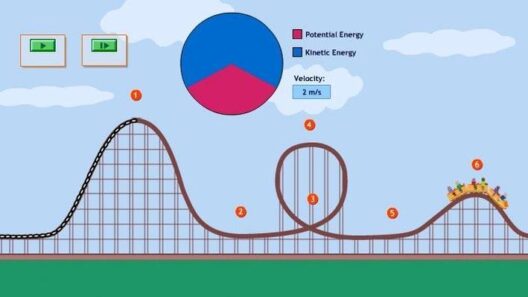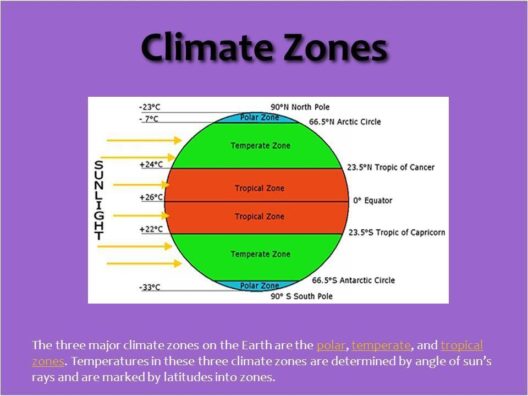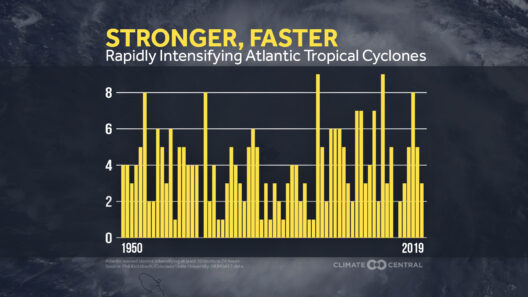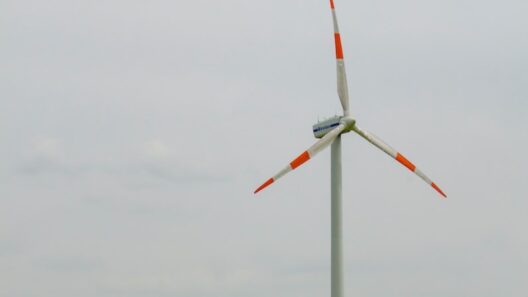As climate change becomes an increasingly pressing issue, the question of whether humans are responsible for global warming gains prominence. The insatiable human need for energy, coupled with industrial expansion, agriculture, and urban development, has led to drastic alterations in the climate system. This exposition will delve into the multifaceted evidence that links human actions to the ongoing changes in our planet’s climate, highlighting relevant academic sources that robustly support this assertion.
The scientific consensus asserts that human activities are the primary drivers of climate change. This conclusion emerges from a synthesis of extensive data analyses and climate modelling conducted by researchers globally. Factors contributing to global warming primarily include greenhouse gas emissions, deforestation, and land-use changes. The burning of fossil fuels, such as coal, oil, and natural gas, introduces colossal amounts of carbon dioxide (CO2) and methane into the atmosphere. These gases trap heat, leading to a gradual increase in global temperatures. According to the Intergovernmental Panel on Climate Change (IPCC), human-induced factors are responsible for over 90% of the observed temperature rise since the mid-20th century.
A pivotal academic source, the IPCC Assessment Report, meticulously outlines the impacts of anthropogenic greenhouse gas emissions. The report articulates how industrialization released CO2 levels that exceeded natural variability. It emphasizes the correlation between economic growth and emissions, positing that sections of the economy that thrive on fossil fuels inherently contribute to climate change. Furthermore, the temperature anomaly data from the National Aeronautics and Space Administration (NASA) corroborates this, illustrating how recent decades have seen unprecedented warming trends linked to human actions.
The realm of atmospheric science provides invaluable insight into the mechanics of global warming. Research by climatologist Michael Mann introduces the “hockey stick” graph, which illustrates a stark increase in global temperatures over the last century compared to the previous millennium. Mann’s work implies that while natural forces can fluctuate temperatures, the current rate of increase starkly diverges from historical patterns, suggesting anthropogenic interference as the accelerative force. The disruption of the natural carbon cycle—the balance of carbon exchange among the atmosphere, terrestrial biosphere, and oceans—has notably been influenced by human activities, further accentuating the urgency of understanding our impact.
Deforestation presents another critical avenue for understanding human-induced global warming. As forests are cleared for agriculture, urban development, or logging, the carbon that was previously sequestered within trees is released into the atmosphere. A report by the World Resources Institute emphasizes the catastrophic role of tropical deforestation in exacerbating climate change. It explains how this not only adds to the atmospheric concentration of greenhouse gases but also strips away vital carbon sinks necessary for mitigating climate impact. The loss of such ecosystems diminishes biodiversity and alters weather patterns, creating a cascade of negative effects that can fuel further climatic instability.
Land-use changes, particularly in agriculture, also contribute significantly to climate change. Conventional farming practices often rely on heavy pesticide use and fertilizers, which release nitrous oxide—a potent greenhouse gas—into the atmosphere. Additionally, the livestock sector produces considerable methane emissions through enteric fermentation. The Food and Agriculture Organization (FAO) highlights that the livestock industry is responsible for about 14.5% of global greenhouse gas emissions. Evidence from peer-reviewed studies indicates that transitioning towards more sustainable agricultural practices could substantially mitigate these emissions, suggesting a reconciliatory path forward.
The intrinsic curiosity surrounding human-induced climate change goes beyond scientific debate; it touches on societal behavior, policy-making, and ethical considerations. The fascination with this phenomenon lies in the realization that human civilization possesses the agency to alter the course of the planet’s climate. Institutions such as the United Nations Framework Convention on Climate Change (UNFCCC) have galvanized nations toward a concerted effort in curbing emissions and investing in renewable energy sources. The Paris Agreement exemplifies a global consensus recognizing the necessity for immediate action to limit warming to well below 2 degrees Celsius.
Moreover, public awareness and the dialogue surrounding climate change demonstrate an evolving mindset within societies worldwide. Movements advocating for climate justice emphasize the need to hold those most responsible for greenhouse gas emissions accountable, particularly industrialized nations and corporations. This grassroots mobilization signals an acknowledgment of the intricate connection between socio-economic inequalities and environmental degradation, transcending mere scientific inquiry into social implications.
As individuals, the choices made daily can also propagate significant effects. Encouraging shifts towards renewable energy sources, endorsing sustainable consumer behavior, and advocating for systemic changes in governmental policies can collectively influence global temperatures. Academic research illustrates the potential benefits of increased energy efficiency, public transit usage, and plant-based diets as part of a multifaceted strategy to combat climate change. Consumers increasingly face the reality of their collective power to adjust market dynamics through conscious choices.
In conclusion, the consensus among scientists underscores a profound understanding that human activities are largely responsible for the current trajectory of global warming. The development of technology, patterns of consumption, and systemic land use changes collectively contribute to this pressing issue. Academic literature elucidates the granular mechanisms at play, reinforcing the notion that human agency not only catalyzes climate change but also holds the potential to remediate it. As awareness burgeons and global discourse accelerates, it becomes increasingly apparent that steering collective actions toward sustainability must remain at the forefront of the climate conversation. The future health of our planet, dependent on informed choices and concerted initiatives, invites rigorous exploration and engagement from a global populace committed to combating environmental degradation.



